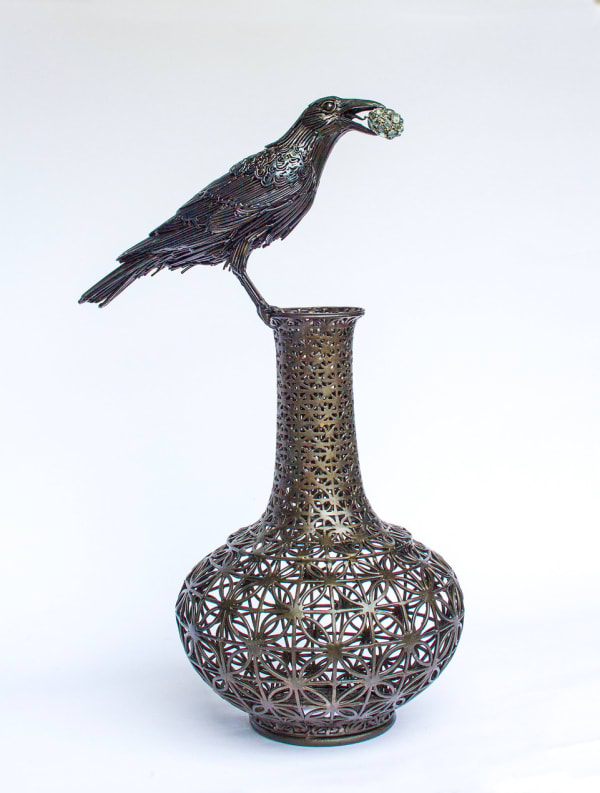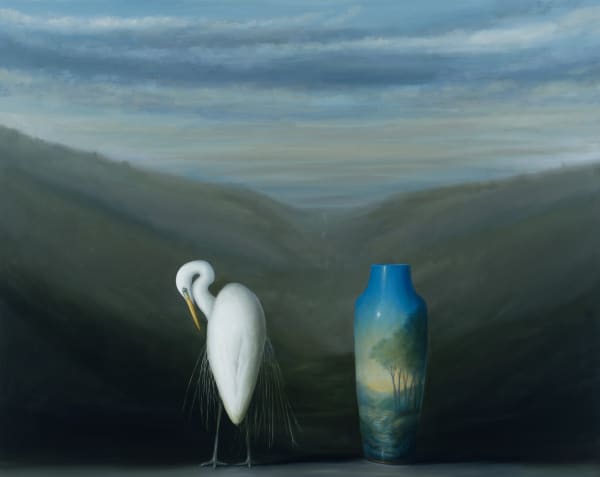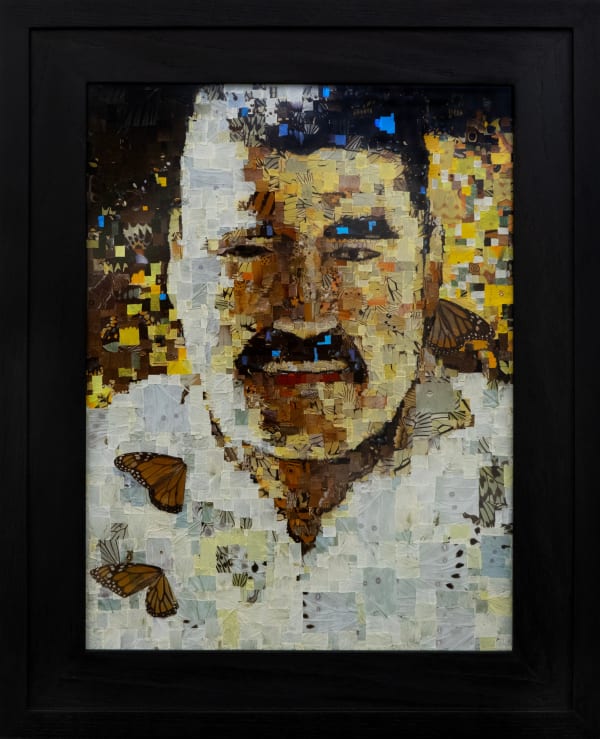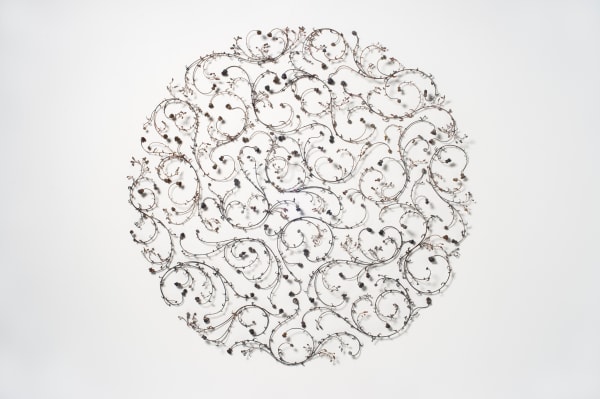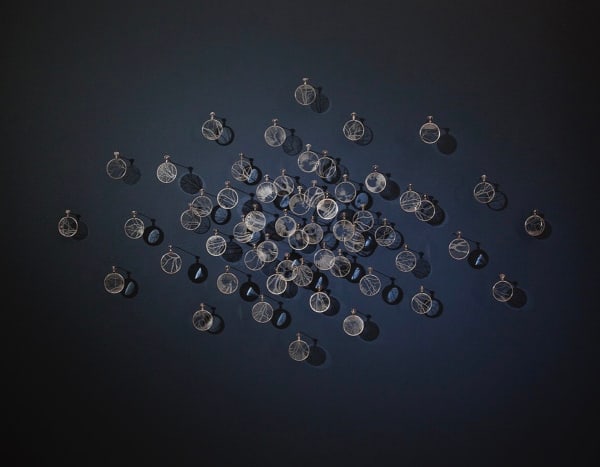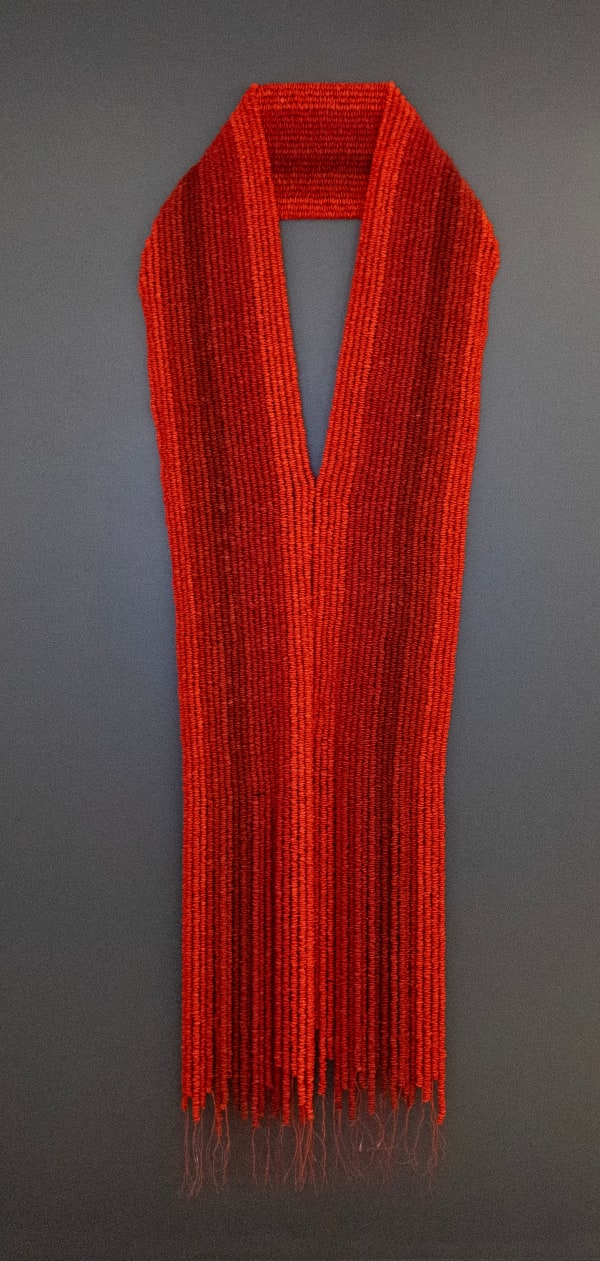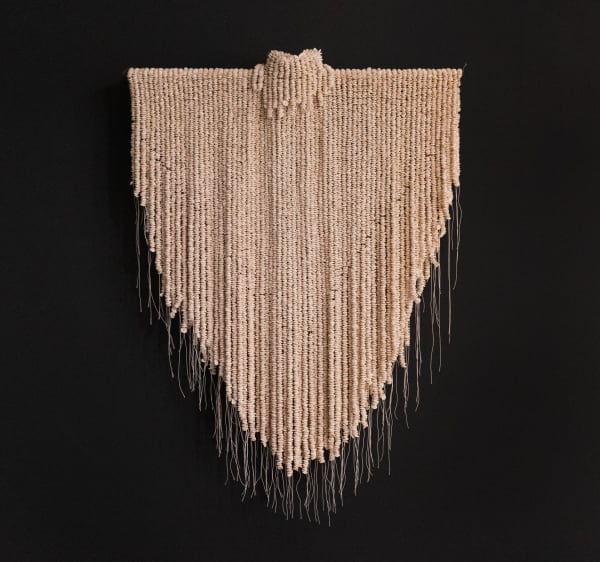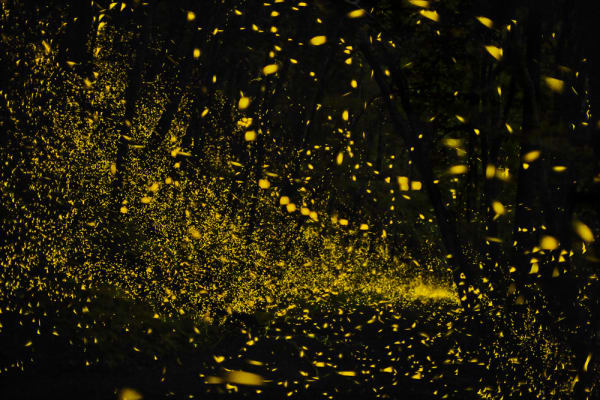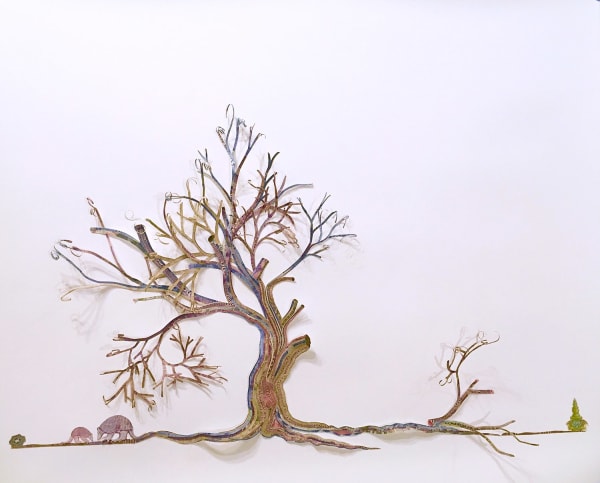NI: Natural Intelligence
I believe my survival depends on paying close attention to nature and my surroundings. I tend to avoid AI and limit technology... I keep my intuition at the forefront and prefer to interact and to be inspired by nature's intricate and authentic expression.
- Mayme Kratz
NI: Natural Intelligence, Lisa Sette Gallery’s first show of 2026, considers nature as a timeless creative source, endlessly generating mysterious and infinite meanings. This is in stark contrast to the closed digital systems of AI–while the purported “intelligence” of large data sets is circumscribed by the limits of human experience and technical capacity, nature’s systems are universal and exist primarily outside of human comprehension. In fascinating forms and unexpected materials, the artists of NI: Natural Intelligence offer us poignant and intriguing pathways into the enigmatic domains of nature and the ever-expanding cosmos.
Lisa Sette observes “In contrast to AI, nature is intelligent far beyond human speculation. These artists focus on the inherent beauty and intelligence of the natural world as a solace in our fraught world of plastic and screens.” Featuring works by, Kim Cridler, Ala Ebtekar, Carlos Estévez, Cameron Gainer, Máximo González, Timothy Horn, Alan Bur Johnson, Michael Koerner, Mayme Kratz, David Kroll, Marie Navarre, Beverly Penn, Benjamin Timpson, Frances Whitehead and Xawery Wolski, NI: Natural Intelligence opens with a public reception on Saturday, January 10 and continues through February 28, 2026.
FOR IMMEDIATE RELEASE: October 1, 2025
Exhibition Dates:
January 10 – February 28, 2026
Opening Reception with artists:
Saturday, January 10, 2026
1:00 - 3:00pm
NI: Natural Intelligence, Lisa Sette Gallery’s first show of 2026, considers nature as a timeless creative source, endlessly generating mysterious and infinite meanings. This is in stark contrast to the closed digital systems of AI–while the purported “intelligence” of large data sets is circumscribed by the limits of human experience and technical capacity, nature’s systems are universal and exist primarily outside of human comprehension. In fascinating forms and unexpected materials, the artists of NI: Natural Intelligence offer us poignant and intriguing pathways into the enigmatic domains of nature and the ever-expanding cosmos.
Lisa Sette observes “In contrast to AI, nature is intelligent far beyond human speculation. These artists focus on the inherent beauty and intelligence of the natural world as a solace in our fraught world of plastic and screens.” Featuring works by, Kim Cridler, Ala Ebtekar, Carlos Estévez, Cameron Gainer, Máximo González, Timothy Horn, Alan Bur Johnson, Michael Koerner, Mayme Kratz, David Kroll, Marie Navarre, Beverly Penn, Benjamin Timpson, Frances Whitehead and Xawery Wolski, NI: Natural Intelligence opens with a public reception on Saturday, January 10 and continues through February 28, 2026.
Lisa Sette Gallery’s carefully curated roster of international and experimental artists often reference human relationships with the natural world, and the way that both the natural systems of the earth and the creative endeavors of humans measure out patterns of time, loss, beauty, and decay in their multiplicity of manifestations. Beverly Penn’s ornate botanical sculptures in complex patinated bronze remind us of the deep biological intimacy between humans and plants, a relationship of human aesthetic intention as well as biological survival.
Penn’s works require a high degree of technical expertise, but nevertheless feel instinctive, part of an ancient gesture toward pattern and assemblage. A scholar of historical ornament as well as a botanical archivist and sculptor, Penn is fascinated by the weeds of the chaparral and hill country ecologies surrounding her home in Texas, particularly those growing by roadways and in other human-shaped spaces. Like the thistles that make up Penn’s wondrous Acanthus (2023), these hardy species reflect the changes wrought by a warming climate and the persistence of life even on an altered earth. “I’m very interested in not only the plants, but the intersection of where nature and culture make their dividing line and have boundaries that are crossed over time,” says Penn. “They are at odds with each other, but also in synthesis.”
In its vast diversity, nature’s through-line in the work of human creativity is often material; the butterfly-wing mosaics of Benjamin Timpson are a striking example. Piecing together the chitinous substance of responsibly-sourced butterfly wings, Timpson produces complex tessellated portraits of missing Indigenous people. Timpson’s images, illuminated in 15 minute intervals by slow-phasing lightbox frames, are vibrant and shifting, connecting the lost person to the spirit that travels on in collective memory. NI: Natural Intelligence will showcase one of Timpson’s recent portraits, Homero Gómez González (2025), depicting a Michoacano logger turned butterfly activist who went missing, and was later found murdered, on the El Rosario Monarch Butterfly Preserve, a component of the Monarch Butterfly Biosphere Reserve. Gómez González founded the Preserve when, after generations of family logging, he recognized the terrible impact of deforestation on the monarch butterflies that winter in his home of El Rosario.
Natural–and human–capacity for change is exemplified in Timpson’s portrait and in Gómez González’s life, as well as the material used: butterfly wings have the unique biological capability to shift hues, both transmitting and reflecting light. Timpson remarks, “if people don’t get anything else from my work, I know they will at least understand that–how this simple organic structure can shift and change, and fool us, even though we think we’re these complex, smart beings.”
Whether in biological materials or the traditional media of painting and sculpture, the artists of NI: Natural Intelligence turn toward a natural world that is fertile with conceptual content. Mayme Kratz encases found organic objects in cast resin forms, arranging each precious and often tiny component into breathtaking formations that may resemble expanding galaxies, spreading forests, billowing grasses, or microscopic organisms. A collector of gifts from the ground and an explorer of forgotten places, Kratz does not contrive to replicate a given environment or expound a specific narrative about the places that she finds her archive of fascinating objects. Instead her works present a personal catalog of the vast systems of the natural world: The bleached bones of animals who died in the brush, the roots and seeds and splinters that result when organic systems live and die, multiply and ascend. Infused with poetry and longing, Kratz’s arrangements of biological matter in resin are majestic, glowing tributes to the foundational matter of the earth’s biological systems.
I grew up with wild starry nights, frogs and crickets, coyotes and mystery. Now, in my decade of 60, it is all I want, to live as I did in my youth, and yet I feel tethered by technology and the world it has created.
- Mayme Kratz
In woven steel vessels, the sculptor Kim Cridler intertwines the deeply human pursuits of containment and ornament with the unpredictable patterns of nature and animal life. The artist states, “My work, based on familiar forms like trees and vessels, argues for the pleasure found in beauty, and the power of material and form.” Cridler’s inspiration comes in part from her formal study of human design, ornament, and metalworking, but also arises from a lifetime of daily rambles and observations from her home in rural Michigan. “These works serve as a reminder of our own place in the natural world; no matter how carefully we construct and manage our daily experiences, life will not leave us alone or untouched by change.”
NI: Natural Intelligence offers a serene focus for our current moment mired in AI iterations and digital distractions. Its artists reveal how the natural world may offer a new set of organizing principals, one that takes its prompts from the wild and limitless nature of the universe that surrounds us.

